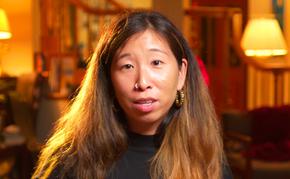The views expressed in our content reflect individual perspectives and do not represent the authoritative views of the Baha'i Faith.
I recently attended a conference on the theme of “Teaching and Learning,” which made me wonder about how those two important subjects connect to one another.
With so many ideas being explored that day, I have been thinking ever since about the relationship between teaching and learning—and even whether one can occur without the other.
We’ve probably all heard the proverbial question about a tree that falls in the forest and whether it make a sound if no one hears it. So: can teaching take place in the absence of learning?
Classic communications theory would say no, insisting that a message must have a receiver. Within these theoretical terms, communication requires a sender, a medium, and a receiver; and then a feedback loop can be established, whereby one impacts or influences the other.
I see this differently though, and the reason is simple. As I sit in my home office writing this, the sun is shining, and it does so for everyone, not just for me. Even though at the moment I cannot see it, I do believe it is shining. So far as feedback is concerned—well, the sun doesn’t stop shining just because I don’t notice it doing so.
Within the framework of religious traditions, this discussion takes on a different perspective, and the words we use would therefore be different. To offer a metaphor, teaching might be considered truths or instruction put forth by the divine messengers and prophets—which means learning then becomes the resulting changes in people’s thoughts and behaviors.
As an individual, I might wonder what determines whether I receive the teaching and what I might do with it, i.e. how I might learn. The answer: I have free will to recognize it and to act to the extent of my own capacity. In this context, capacity is more than just innate intelligence (such as measured by IQ or even EQ tests). Rather, the word refers to receptivity, lack of prejudice, and a yearning to learn and grow. Through free will I can choose to stretch to the limits of my capacity, or I can remain unfulfilled.
Baha’is follow the teachings of Baha’u’llah, and “Divine Educator” is among the many ways Baha’is refer to the founder of our Faith. His presence was announced and his message given, independent of who heard or responded to it. Since the essence of Baha’u’llah’s message is unity, we believe that the world is moving toward unity, even as signs of disunity linger along the way:
It is certain that the greatest of instrumentalities for achieving the advancement and the glory of man, the supreme agency for the enlightenment and the redemption of the world, is love and fellowship and unity among all the members of the human race Nothing can be effected in the world, not even conceivably, without unity and agreement, and the perfect means for engendering fellowship and union is true religion. – Abdu’l-Baha, The Secret of Divine Civilization, pp. 73-74.
Through the ages, many divine educators have come to instruct humanity with the purpose of advancing civilization and guiding us to higher awareness. Since the fundamental truths have not changed, Baha’is agree with the basic principles found within other religious traditions. But as humanity has developed and matured, so has the message. Specifically, throughout human history teachings have been revealed about practical affairs and issues relevant to the times. Whatever may be a person’s motivation for learning, it offers many benefits. As Leonardo da Vinci said: “The noblest pleasure is the joy of understanding.”
So, to return to my initial question about teaching and learning, I do think one can take place without the other. I can choose to be attentive to teaching and to learn from it; or I can choose to disregard it. In either case, the consequences are mine to consider. Whether or not I myself learn, the potential remains for others to learn and to benefit—much like the sun shines even when I do not see it.

















Comments
Sign in or create an account
Continue with Facebookor